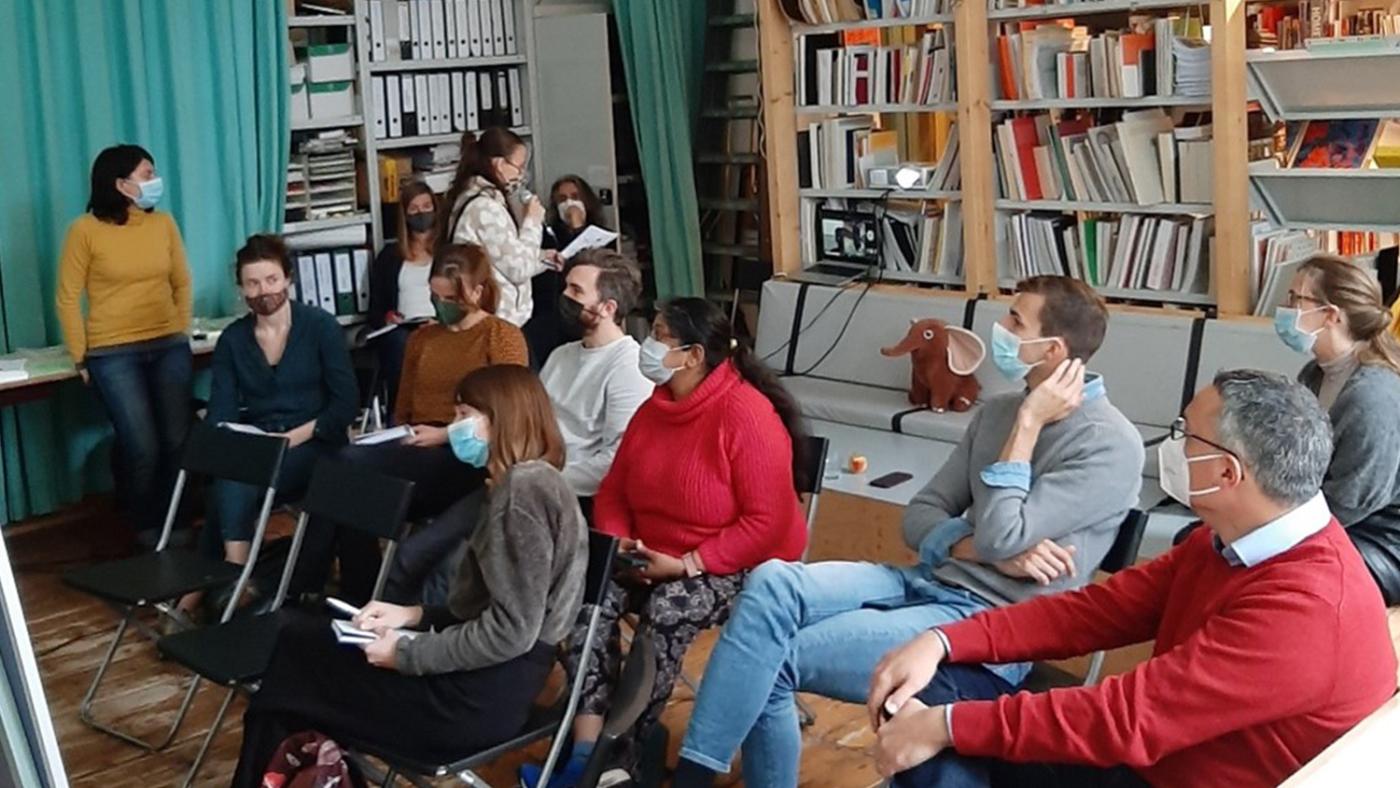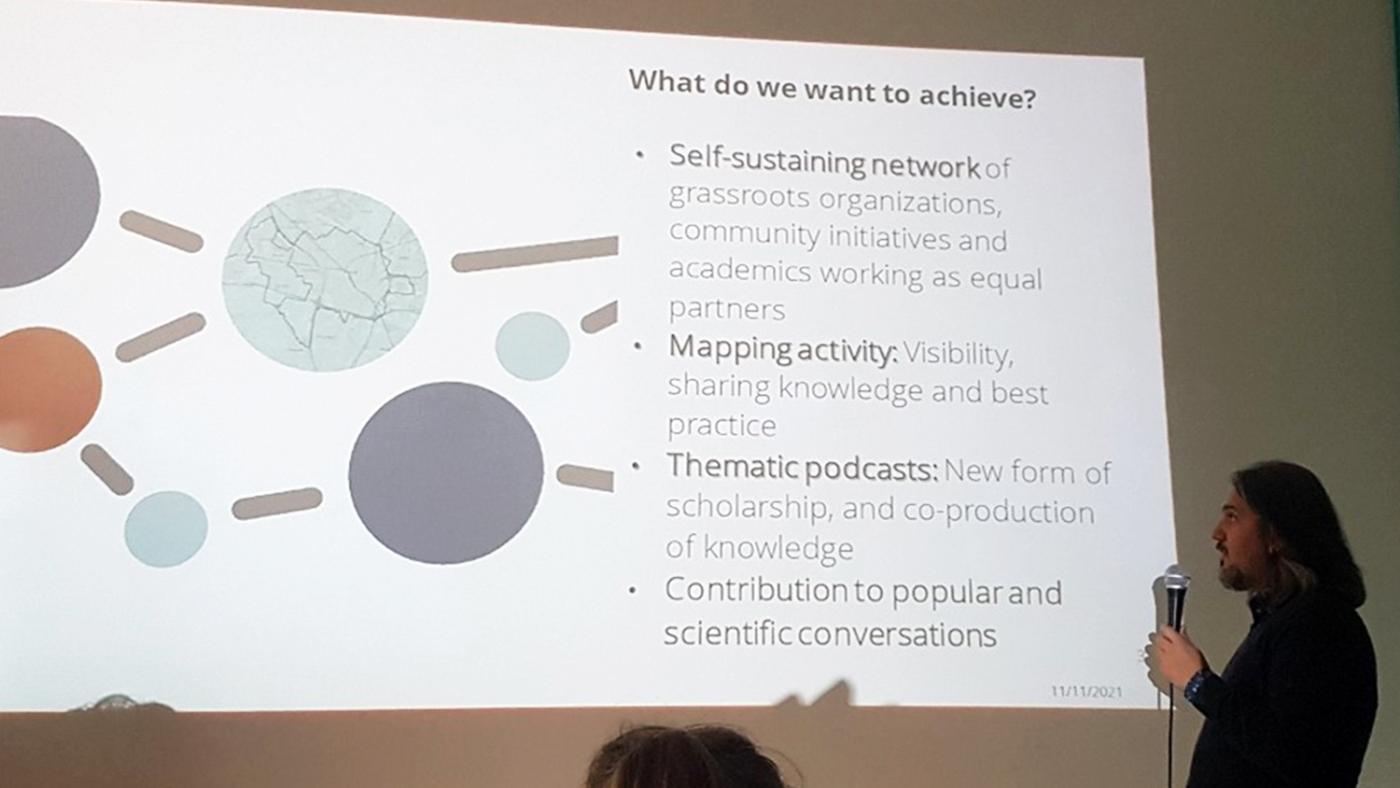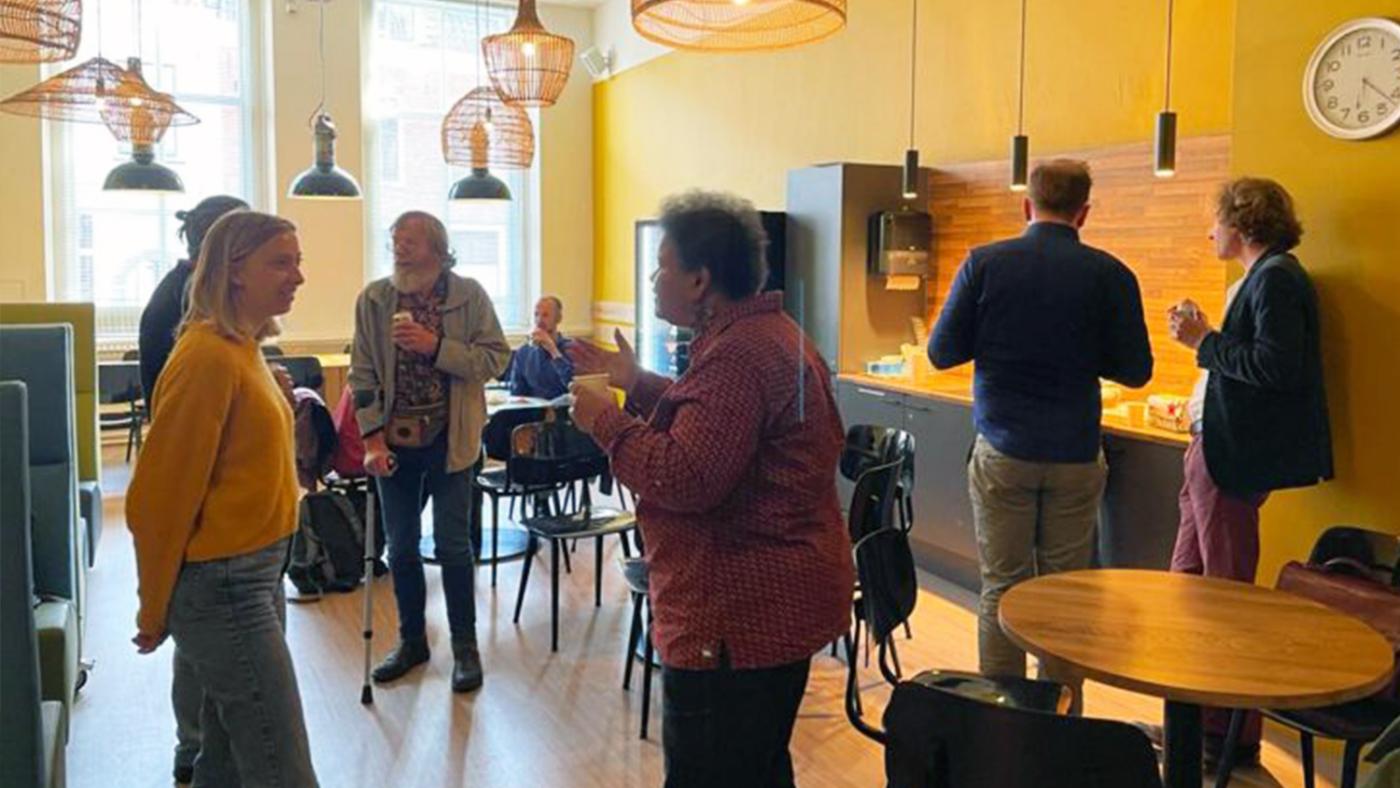Sharing academic knowledge requires money
‘Public engagement is something for the long term’

It all started years ago in New Zealand, when researcher Ozan Alakavuklar, Associate Professor of Administrative & Organisational Science at Utrecht University, became interested in alternative ways of organising. “My research for a small organisation in New Zealand put me in touch with small-scale local initiatives and the world of activism,” he recollects. “These citizen and community initiatives were organised in a way that differed significantly from traditional organisations and their top-down approach, which intrigued me and made me think about how we can organise our society differently, without basing it solely on economic gain. Once in the Netherlands, I wanted to continue that research, so I started investigating how I could unite the worlds of science and activism.”
He wanted to do this not only in theory but also in practice. “Academic research ends up on a shelf too often,” says Alakavuklar. “I wanted to prevent that from happening, so I approached colleagues with the idea of setting up a network of scientists, activists, community initiatives and citizen movements that would help each other and facilitate students' research.” Through this cooperation, the network would bring about "ecological sustainability and social change" to the city of Utrecht.
Social forms
To realise these plans, the group received a two-year subsidy of 40,000 euros from Transforming Cities, which falls under the strategic research theme Pathways to Sustainability. Anders Utrecht was born in 2020. At the time, the network consisted of only five scientists and a project assistant, who started looking for small-scale initiatives carried out by citizens. Ultimately, eighteen initiatives joined the network, which was also able to collaborate with the B&O Master's Organising Social Impact.
“The organisations affiliated with Anders Utrecht are at the forefront when it comes to offering creative and alternative solutions to contemporary problems,” says Alakavuklar. “They do not work according to current market methods. Instead, they look at society from a social perspective or activist view. As researchers, we can learn from this. How do these organisations organise themselves? How are they different from mainstream organisations? What are the advantages and disadvantages of a small or non-hierarchical organisation?”
These are all research questions that students can work on. “While doing so, we see these organisations not only as objects of study but as equal partners. Get your hands dirty by spending time with the organisations. See what challenges and tensions they experience. It's about learning together. The organisations have questions themselves, such as how they can increase their visibility or how they can organise themselves more effectively. We present these questions to the students who can then research them. The results of the research are then made available to everyone.”

Social media
UU Media Scientist and Assistant Professor Dan Hassler-Forest is one of the researchers who joined Anders Utrecht. “They were looking for someone interested in getting involved with the initiative from a different angle and could strike the right tone to the outside world,” he says. “For example, how do you communicate? Scientists do not always speak the same language as people outside academia. You also want to use a language that works for all parties involved and I could contribute to that. Besides, I enjoyed experiencing the theory in practice.”
Hassler-Forest helped Anders Utrecht with the design of the online platforms, the production of podcasts and the implementation of workshops that the scientists organised for the affiliated organisations. The podcasts consisted of thematic conversations with grassroots organisations about sustainability. As for the workshops, they focused on social media, volunteer fatigue, and strategies for social change. “For example, one of the workshops was about how to use social media when you do not have a full-time employee at your disposal who can do that kind of work. Lack of resources is a common problem among these small organisations. I was able to give them practical advice and help devise a strategy to work on their digital presence. After all, that is indispensable these days and that also goes for this type of organisation.”
Learning from each other
One of the organisations that has been involved with the network from the beginning is Casco Art Institute, an organisation engaged in collaborations that promote non-economic relationships. Marianna Takou, one of the two directors, says that joining Anders Utrecht was a given from day one. “Casco is always open to collaborating with other disciplines,” she explains. “We choose projects based on shared interests and reciprocity. Anders Utrecht fitted that bill perfectly.”
Takou explains that researchers were interested in Casco's way of working and their collaborative initiatives. “After all, the network could learn from that. But the researchers also benefitted from practical things, such as when we made our space available for meetings and workshops. Casco employees, in turn, were given the opportunity to contribute to their podcasts, give lectures in the Master's programme, and share their experiences with other grassroots organisations in the network. Casco already worked with organisations such as Taste Before You Waste, but we would not have met some of those neighbourhood organisations without Anders Utrecht, which is something we learn from too. Anders Utrecht may be less active now, but that informal interaction and the relationships that have developed through the network are the most valuable thing to us.”

Graduation research
Villa Vrede, an organisation that accommodates people without a valid residence permit, was one of the places where Master's students could work. Several students are doing their graduation research there. “The results of these studies give us insight into our working methods and our relationship with the municipality and central government,” explains employee Leonie Van Bruggen. “But we also joined the network to be in touch with other social organisations and increase our visibility as it is important to us that people know what Villa Vrede stands for and where to find us.”
According to Van Bruggen, there is still room for improvement in this regard. “We have not yet reached the point where we can always find each other. What is lacking is a broader strategy. For example, I once contributed to a podcast for Anders Utrecht. I think it would be nice to do more in the future. They could invite undocumented people to the table, for instance, and these next steps have not been taken yet, which is a shame. The organisations themselves have a role to play in this, of course, but we need someone who can take the lead. So, in the wish also lies the challenge”.
What’s next
Alakavuklar would like to grant that wish, but when the two-year subsidy ended in 2023, there was no more money to keep all the initiatives going. An attempt was made to obtain an EU grant together with four European universities, but the application was not honoured. “The network still exists and the collaboration with the Master's programme is ongoing”, says Alakavuklar, “but all other initiatives are on the back burner, as is the expansion of the network. Otherwise, we would have to work on it in our spare time,” he explains.
The initiatives can be revived if they manage to obtain funding again, say both Alakavuklar and Hassler-Forest. “The infrastructure is there and the knowledge gained is still being shared, but it is difficult to arrange day-to-day affairs without a monthly subsidy,” says Hassler-Forest. “Moreover, the network requires a lot of time from all parties involved. Nowadays, everyone is busy sharing academic knowledge with practice, but public engagement is something for the long term. Unfortunately, in academia, we rely on subsidies and scientists have to compete with each other for grants, which makes it complicated.”
Hassler-Forest adds: “Anders Utrecht is a great example of academics sharing their knowledge for the benefit of society. And that doesn't have to be very complicated.” Alakavuklar agrees. “I see myself as a bit of an activist scientist. Science can serve society in various ways. So can activism. The combination of the two can lead to great results and Anders Utrecht is a first step in the right direction.”